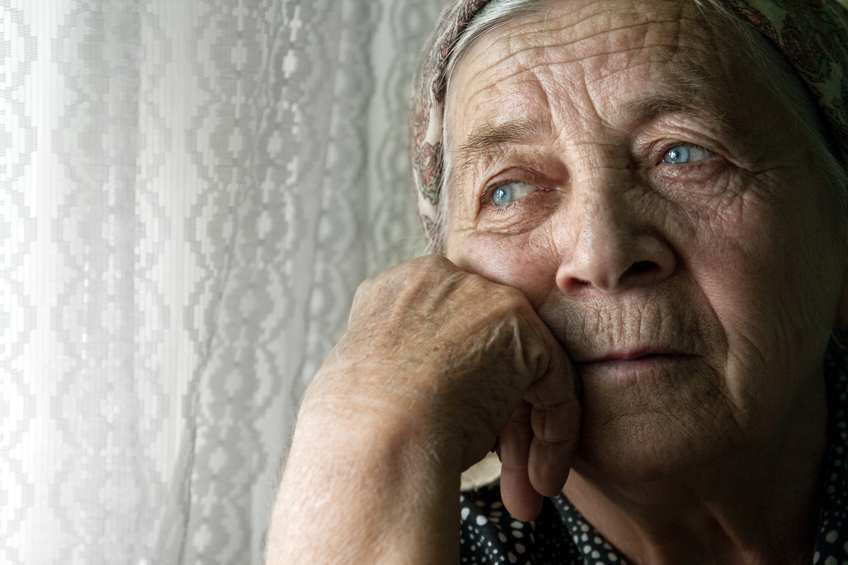Protecting Seniors from Elder Abuse

One in five Canadians believes they know of a senior who may be experiencing some form of abuse (Government of Canada). Without regard to social, economic, or ethnic groups, seniors are vulnerable to elder abuse – it happens every day in communities across Canada. In 2015, a survey conducted by the National Initiative for the Care of the Elderly found that 7.5% of Canadians over age 55 – or 695,248 people – experienced abuse in the previous year. Elder abuse is often called a “hidden” or “invisible” crime because it is seldom reported to police.
“Elder abuse is a single or repeated act, or lack of appropriate action, occurring within any relationship where there is an expectation of trust, which causes harm or distress to an older person,” says the World Health Organization. “This type of violence constitutes a violation of human rights and includes physical, sexual, psychological, and emotional abuse; financial and material abuse; abandonment; neglect; and serious loss of dignity and respect.”
The International Network for the Prevention of Elder Abuse and the World Health Organization at the United Nations (UN) launched the first World Elder Abuse Awareness Day (WEAAD) on June 15, 2006 to unite communities around the world in raising elder abuse awareness. WEAAD is in support of the UN’s International Plan of Action acknowledging the significance of elder abuse as a public health and human rights issue and its initiatives to advance health and well-being into old age, ensuring enabling and supportive environments.
The number of elder abuse cases is expected to rise as Canada’s population ages. Elder abuse can happen in any care settings, including inpatient and outpatient clinical care, hospitals, long-term care facilities, and at home.
Types of Elder Abuse
- Active/Passive Neglect
- Physical abuse
- Sexual abuse
- Financial abuse and exploitation
- Emotional or psychological abuse and neglect (including verbal abuse and threats)
- Abandonment
- Self-neglect
Financial Abuse Most Common
The most commonly reported type of elder abuse is financial abuse. Financial abuse decreases the overall financial worth of an older person without benefit to that person and may include:
Misusing, abusing, or stealing a senior’s property or money;
Cashing an elderly person’s checks without authorization;
Pressuring seniors to create or change a will, sign legal documents or property transfers such as Power of Attorney, that they do not fully understand;
Sharing or using an older person’s home and/or car without contributing a fair share of the expenses, if requested by the senior.
Signs of Financial Abuse and Exploitation
- Apparent lack of amenities but not due to financial hardship
- Vulnerable elder/adult “voluntarily” giving excessive financial reimbursement, assistance or gifts in exchange for necessary care and companionship
- Frequently lends money without repayment or makes undesired purchases
- Unapproved bank account withdrawals or credit card charges
- Receiving overdue bills that were supposedly paid
- Checks are cashed without the elderly person’s signature or forged signature
Preventing Abuse: Protect Yourself, Protect Your Loved One
If you or someone you love is at risk of financial abuse and exploitation, here are some precautionary measures you may consider taking:
- Ensure any income is directly deposited into your checking account.
- If managing your daily finances becomes too difficult or you find you’re making an excessive number of mistakes, consider utilizing a daily money manager.
- Have an estate plan in place by speaking with an attorney about helping you create the following as appropriate: – a living will, a revocable trust, and a durable power of attorney for healthcare and/or asset management.
- Name a person you trust, sooner rather than later, to make healthcare and financial/asset management decisions for you should you become incapable.
- Consider designating co-powers of attorney to ensure that no one person can act unilaterally.
- Don’t be pressured or intimidated into immediate decisions, especially in making large purchases or signing documents.
- Never sign documents you don’t fully understand without consulting an attorney or family member you trust.
- Do not provide personal information such as your social security number or credit card number, over the phone unless you initiated the call.
- Shred receipts, bank and credit card statements, and financial records before putting in the trash.
- If you hire someone for personal assistance services, such as a home health care provider, make sure they have been properly screened
It is important to tell someone if you think you are experiencing financial abuse: a close friend or family member, a health care provider or social services professional, a legal or financial advisor, a member of your faith community, or local authorities.
Better Care for a Better Life: Connections
Staying connected and avoiding isolation is one of the best things you can do for yourself, or your loved one. By helping seniors build a network of family, friends, caregivers, and neighbors, the risk for elder abuse is significantly reduced. It’s important for seniors to stay active and busy by getting involved with local senior centers or other elder groups. Consider hiring a personal caregiver to provider companionship, facilitate connections, and provide respite to families.
If you’re considering a home health service provider, contact Bayshore HealthCare today for a free consultation. We provide home health care services – personalized to your needs!
Sources:
Page ii of https://cnpea.ca/images/canada-report-june-7-2016-pre-study-lynnmcdonald.pdf
https://cnpea.ca/images/factsandrecommendation_2pg.pdf
https://canadianwomen.org/blog/elder-abuse-in-canada/
